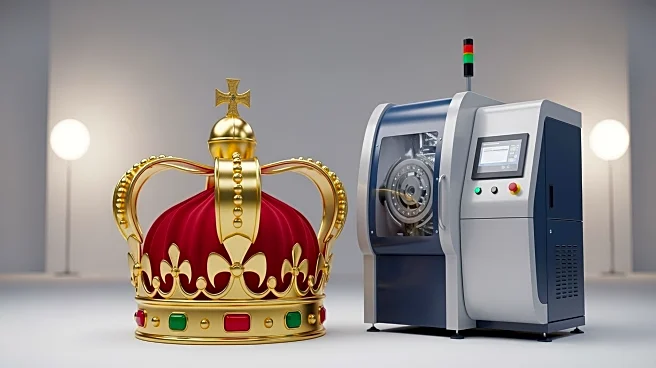What's Happening?
The Royal Mint's partnership with Excir Reformation Metals has been acknowledged at the G7 Summit as a model for international collaboration in metal recovery. Since 2022, the partnership has focused on scaling
up technology to extract valuable metals like gold, silver, and platinum from electronic waste. The project received CAD $500,000 in funding from Canada's NRC-IRAP and UKRI, and aims to expand the range of metals recovered from electronic waste. This recognition highlights the importance of responsible metal recovery and the strength of UK-Canada collaboration in securing materials essential for clean energy and advanced manufacturing.
Why It's Important?
The recognition of The Royal Mint and Excir's partnership underscores the growing international focus on sustainable metal recovery, which is crucial for the circular economy. By recovering precious metals from electronic waste, the initiative supports clean energy and advanced manufacturing sectors, reducing reliance on traditional mining. This collaboration sets a precedent for other nations to follow, potentially leading to more sustainable practices in metal recovery and contributing to global efforts in reducing electronic waste and promoting environmental sustainability.
What's Next?
The partnership plans to expand its metal recovery capabilities, potentially influencing policy and industry standards in electronic waste management. As the initiative gains international attention, it may inspire similar collaborations across other nations, fostering innovation in sustainable practices. The success of this project could lead to increased funding and support for similar initiatives, further advancing the circular economy and reducing environmental impact.
Beyond the Headlines
The ethical implications of electronic waste management are significant, as improper disposal can lead to environmental degradation and health risks. This partnership not only addresses these issues but also promotes ethical sourcing of materials, which is increasingly important in global supply chains. The collaboration may also influence cultural perceptions of waste, encouraging more responsible consumer behavior and corporate practices.









